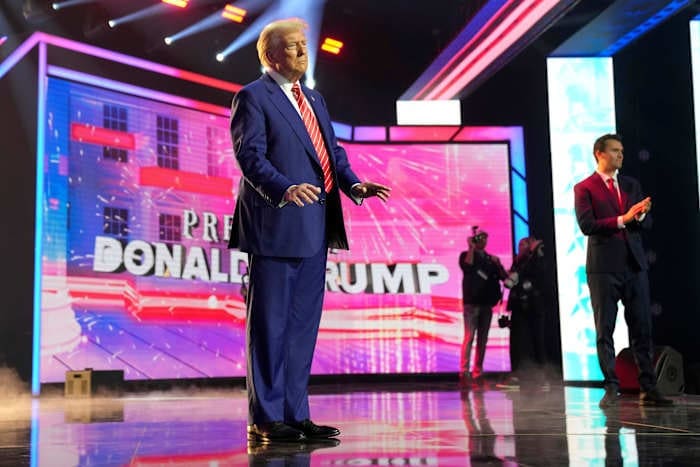On Sunday, President-elect Donald Trump made headlines by proposing that the United States may attempt to reclaim control of the Panama Canal, which he criticized as being “foolishly” given away. This comment, delivered at a major rally in Phoenix, immediately sparked a strong rebuttal from Panama’s president, José Raúl Mulino, who viewed it as a direct challenge to his nation’s sovereignty.
During a rally at Turning Point USA’s AmericaFest in Arizona, Trump addressed a cheering crowd of conservative supporters. In his speech, he promised a resurgence in the U.S. economy, fortified borders, and a resolution to ongoing geopolitical conflicts. However, it was his remarks on the Panama Canal that caught international attention. Trump claimed that the United States was being taken advantage of due to exorbitant fees charged for canal transit, a sentiment he tied to a broader narrative of restoring American strength on the global stage.
The historical context of the Panama Canal is crucial here. Built by the United States in the early 20th century, it served as a strategic route for shipping and military purposes. However, in 1977, then-President Jimmy Carter signed a treaty to transfer control to Panama, a transition completed by the end of 1999. This move was part of a diplomatic effort to improve relations with Latin American countries, recognizing Panama’s sovereignty over the canal.
In response to Trump’s suggestion, President José Raúl Mulino issued a video statement affirming Panama’s ownership and management of the canal. He underscored that decisions about transit fees are based on expert analysis, factoring in operational costs and market demand. Mulino emphasized Panama’s sovereign right to manage the canal, noting that fee increases are necessary for ongoing improvements and expansions.
Within the United States, Trump’s remarks come amid a backdrop of partisan tensions, particularly related to fiscal policy and governance. His supporters view his return to office as a decisive opportunity to assert American interests, while his critics raise concerns about diplomatic relations and geopolitical stability.
Trump’s call to reclaim the canal is seen as part of his broader strategy to galvanize his base. While he did not elaborate on how such a reclamation might be achieved, the proposal aligns with his administration’s focus on renegotiating international agreements perceived as unfavorable to the U.S. The president-elect’s remarks sparked discussions on social media, where he also posted imagery suggesting American reclamation of the canal, further fanning the diplomatic flames.
Mulino’s repudiation of Trump’s suggestion highlights the delicate balance of international diplomacy, where economic interests intersect with national pride. Panama relies heavily on the canal, which constitutes a significant portion of its revenue. Therefore, any proposition that challenges Panama’s control is not taken lightly.
Trump’s fiery rhetoric at the rally was interspersed with his usual themes of American unity and strength. He acknowledged the efforts of Charlie Kirk and Turning Point USA, attributing part of his political success to their grassroots mobilization. Trump’s address, bolstered by appointments such as Stephen Miran to the Council of Economic Advisers and Callista Gingrich as ambassador, underscored his determination to influence both domestic and foreign policies.
Trump’s proposal to reclaim the Panama Canal adds a layer of complexity to his administration’s foreign policy ambitions. While it resonates with his base, this stance could strain relations with Panama and other international allies. The situation underscores the challenges of aligning nationalistic rhetoric with diplomatic realities.
Source: News4jax








